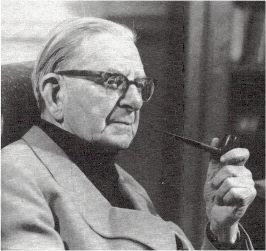A Quote by Alfred Nobel
Kant's style is so heavy that after his pure reason, the reader longs for unreasonableness.
Related Quotes
Every genuinely literary style, from the high authorial voice to Foster Wallace and his footnotes-within-footnotes, requires the reader to see the world from somewhere in particular, or from many places. So every novelist's literary style is nothing less than an ethical strategy - it's always an attempt to get the reader to care about people who are not the same as he or she is.
Kant's aim was to develop a religion within the boundaries of mere reason (that is, reason unaided by special empirical revelation) and then to ask about existing ecclesiastical faith (especially about Christianity, and the Lutheran Christianity of his time and place) how this revealed faith must be interpreted if it is to be reconciled with reason, and even seen as a wider (though morally optional) extension of a religion of reason.
We need to have far less confidence in what man can do and far more confidence in what God can do for every believing soul. He longs to have you reach after Him by faith. He longs to have you expect great things from Him. He longs to give you understanding in temporal as well as in spiritual matters. He can sharpen the intellect. He can give tact and skill. Put your talents into the work, ask God for wisdom, and it will be given you.
I don't believe, in the end, that there is any such thing as no style. Even a very neutral, plain style, one that doesn't use colloquialisms, lyrical flourishes, heavy supplies of metaphor, etc., is a style, and it becomes a writer's characteristic style just as much as a thicker, richer deployment of idiom and vocabulary.
Kelvin Gastelum, there's many ways I can classify his style. I like it. He's improved. One thing I can say is that he's improved over his run in the UFC from 'The Ultimate Fighter' and now being a contender. But his style? It's very Mexican. You have the Mexican style of boxing, and he has a Mexican style of MMA, like smart Mexican style.
The gay bunting erects his white crest, and gives utterance to the joy he feels in the presence of his brooding mate; the willow grouse on the rock crows his challenge aloud; each floweret, chilled by the night air, expands its pure petals; the gentle breeze shakes from the blades of grass the heavy dewdrops.
I found Esau’s field guide at the bottom of my pack. Taking a candle into the bedroom, I read his book until my eyes grew heavy. From his vast notes, it seemed that almost every plant and tree in the jungle had a reason for existing. I caught myself wishing there was a page in his guide that had my picture on it with the reason for my existence written underneath in Esau’s neat hand.





































